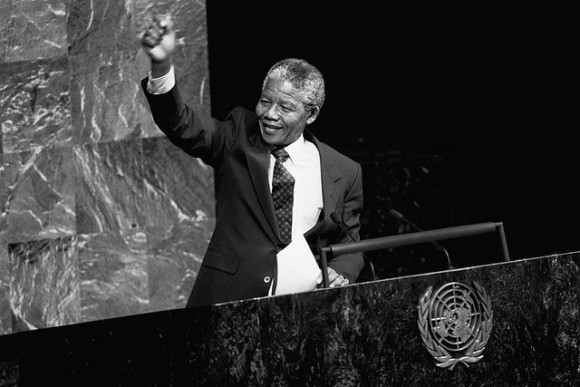
Foreign Policy reports that Japan is stiffening the state’s ability to classify information and punish whistleblowers and is even rolling back their pacifist constitution to get “in line with U.S. preferences.”
The new law, which passed Japan’s upper house Friday, will give agency heads discretionary power to classify 23 types of information in four categories — defense, diplomacy, counter-terrorism, and counter-intelligence — and stiffens penalties for leaking state secrets, even in cases of journalists exposing wrongdoing. Prime Minister Shinzo Abe has insisted that the law is necessary if Japan is to maintain effective diplomatic partnerships with the United States and other allies.
Washington, for its part, has long supported stronger secrecy laws in Japan, if only to make it easier for the two nations to share information.
…The measure is part of a larger effort by Prime Minister Shinzo Abe to move away from Japan’s pacifist past and establish a stronger military posture that is congenial to, or in line with U.S. preferences, according to Samuels. Among other initiatives, Abe plans to create Japan’s version of the U.S. National Security Council, the coordinating body of American foreign policy, and is pushing to reinterpret Japan’s constitution to expand its military’s limited self-defense role — giving it the authority to aid the United States and other allies, if they’re attacked.
These developments should be viewed in the context of the Obama administration’s Asia Pivot, which is helping to militarize U.S. allies in Asia so they can assist in containing a rising China.





![Obama-confused[1]](https://antiwar.com/blog/wp-content/uploads/2013/05/Obama-confused1-e1368542882894.jpg)
